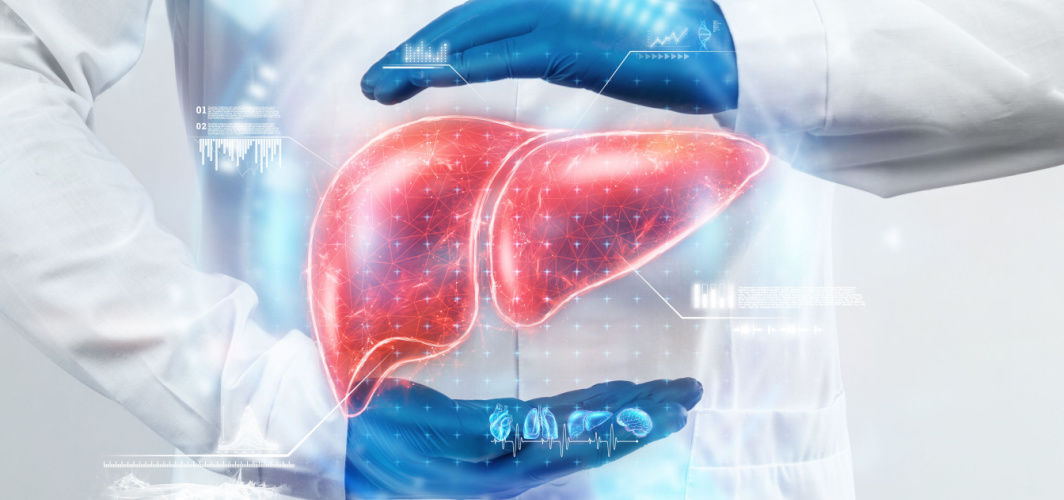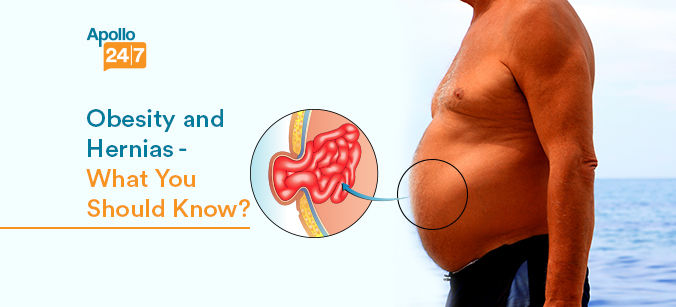General Health
Methylcobalamin Injection: Strategies for Effectively Managing Vitamin B12 Deficiency
7 min read
By Apollo Pharmacy, Published on - 11 September 2023
Share this article
0
0 like

Vitamin B12, also known as cobalamin, is a crucial nutrient that plays a vital role in various bodily functions. It is essential for maintaining healthy nerve cells, DNA synthesis and the production of red blood cells. Vitamin B12 deficiency is a common issue in India, affecting around 50% of the population. It can lead to several health problems if left untreated. In this article, we will discuss how to effectively manage vitamin B12 deficiency with supplements such as methylcobalamin injection.
What is Vitamin B12 Deficiency?
Vitamin B12 deficiency, also known as cobalamin deficiency, is a condition that occurs when there is an insufficient amount of vitamin B12 in the body. Vitamin B12 is a water-soluble vitamin that plays a crucial role in various bodily functions such as the formation of red blood cells and DNA synthesis.
1. Causes and Risk Factors
Some of the main causes and risk factors for vitamin B12 deficiency include:
- Vegetarian and Vegan Diets: Individuals following these diets may not consume enough animal products that are rich in vitamin B12.
- Gastrointestinal Disorders: Conditions like Crohn's disease or coeliac disease can affect the absorption of vitamin B12 from food.
- Certain Medications: Long-term use of antacids or metformin can interfere with the body's ability to absorb vitamin B12.
- Age-related Decrease in Absorption: As we age, our bodies may become less efficient at absorbing vitamin B12 from food sources.
2. Symptoms and Consequences
- Fatigue and Weakness: A common symptom of vitamin B12 deficiency is feeling tired and weak, even after getting enough sleep.
- Numbness or Tingling in Extremities: Some individuals may experience a sensation of pins and needles in their hands and feet.
- Cognitive and Mood Disturbances: Vitamin B12 plays a role in brain health, so deficiency can lead to memory problems, difficulty concentrating, depression or irritability.
- Anaemia: Severe vitamin B12 deficiency can result in megaloblastic anaemia, which can cause fatigue, shortness of breath and pale skin.
Diagnosis and Assessment
Diagnosing and assessing vitamin B12 deficiency accurately is crucial to provide effective management.
1. Blood Tests for Vitamin B12 Levels
Blood tests play an important role in diagnosing and assessing vitamin B12 deficiency.
- Serum B12 level test: It measures the amount of vitamin B12 in the blood.
- Methylmalonic acid (MMA) test: Methylmalonic acid test detects elevated levels of MMA, a compound that increases when there is a deficiency of vitamin B12.
- Homocysteine level test: When there is a deficiency of vitamin B12, homocysteine levels in the blood tend to rise. Elevated homocysteine levels are considered a potential indicator of a deficiency in one or more of these B vitamins.
2. Identifying Underlying Causes
Once a deficiency is confirmed, it is essential to determine the underlying cause to provide appropriate treatment.
- Intrinsic factor antibodies (IFAs) test can help identify autoimmune causes of vitamin B12 deficiency, such as pernicious anaemia.
- Other tests may include evaluating gastric health, checking for parasites or bacterial overgrowth in the intestines, and assessing genetic factors that affect vitamin B12 absorption.
Supplementation Options for Vitamin B12 Deficiency
If you are diagnosed with vitamin B12 deficiency, there are several supplementation options available to manage it effectively. Three common methods include:
1. Oral Supplements
Taking vitamin B12 tablets or capsules is one of the simplest ways to replenish your levels. These supplements are easily available over the counter and can be taken daily.
It is recommended to take high-dose supplements for better absorption if you have severe deficiency symptoms.
2. Intramuscular Injections
Methylcobalamin injections are a more direct and rapid way to increase your vitamin B12 levels.
- These injections are usually administered by healthcare professionals.
- They are recommended for individuals with absorption issues or severe deficiency symptoms.
- Regular injections may be needed initially, followed by maintenance doses.
3. Nasal Sprays
Nasal sprays containing vitamin B12 are another option for supplementation. They work by delivering the vitamin directly into your bloodstream through the nasal membranes.
Nasal sprays may need to be used daily or as recommended by your healthcare provider.
Who Requires Methylcobalamin Injection?
Methylcobalamin injection is typically prescribed for individuals who have a deficiency of vitamin B12, particularly when the deficiency is severe or when there is a need for rapid replenishment of B12 levels.
1. Patients with Pernicious Anaemia
Pernicious anaemia is an autoimmune condition that impairs the body's ability to absorb vitamin B12 from dietary sources. Methylcobalamin injections are often recommended for these patients because they bypass the digestive system and deliver B12 directly into the bloodstream.
2. Severe Vitamin B12 Deficiency
In cases of severe vitamin B12 deficiency that require rapid correction, such as neurological symptoms or complications, healthcare providers may opt for methylcobalamin injections to ensure a quick increase in B12 levels.
3. Certain Medical Conditions
Some medical conditions, medications or surgeries, such as intestinal surgery, can interfere with the absorption of vitamin B12 in the gut. In such cases, healthcare professionals may prescribe methylcobalamin injections to ensure an adequate supply of B12.
4. Maintenance Therapy
In some situations, individuals with known B12 deficiency may require ongoing maintenance therapy with methylcobalamin injections to prevent recurrence.
What are the Side Effects of Methylcobalamin Injection?
Methylcobalamin injection is generally considered safe when administered under the guidance of a healthcare professional, and side effects are typically rare. Some of the possible side effects of methylcobalamin injection are:
- Nausea and vomiting
- Diarrhoea
- Loss of appetite
- Headache
Allergic reactions may include:
- Rash
- Hives
- Itching
- Swelling
- Difficulty breathing
Lifestyle Modifications to Enhance Absorption of Vitamin B12
To enhance the absorption of vitamin B12 and manage deficiency, consider implementing a few lifestyle modifications.
1. Probiotics for Gut Health
Probiotics are beneficial bacteria that can help improve gut health and digestion. Consuming foods rich in probiotics may enhance the absorption of vitamin B12, such as:
- Yoghurt
- Fermented vegetables
2. Avoidance of Alcohol and Smoking
Alcohol and smoking can interfere with the absorption and utilisation of vitamin B12. Limiting alcohol intake and quitting smoking can help improve B12 levels in the body.
3. Stress Management Techniques
Chronic stress can affect the absorption of nutrients, including vitamin B12. Engaging in stress management techniques can help reduce stress levels. They include:
- Meditation
- Deep breathing exercises
- Regular exercise
- Exploring hobbies
Considerations for Specific Population Groups
Vitamin B12 deficiency is a concern for people of all age groups, but it requires special attention in certain populations.
- Older Adults: As we age, our ability to absorb B12 decreases. It is important for older adults to regularly monitor their B12 levels and consider supplements or injections to manage deficiency.
- Pregnant and Lactating Women: Adequate levels of vitamin B12 are essential for the healthy development of the baby. Pregnant and lactating women should ensure they are getting enough B12 through diet or supplements to support their health and that of their children.
- Children and Adolescents: Growing children and teenagers have increased nutrient requirements, including vitamin B12. Parents should focus on providing a balanced diet that includes sources of B12 such as eggs, milk, fish and fortified cereals. If needed, supplements can be considered under medical guidance.
Conclusion
Vitamin B12 deficiency is a common condition that can have serious health consequences if left untreated. Early diagnosis and management are crucial in preventing complications. By staying informed about the latest guidelines and technologies, healthcare professionals can provide the best care for their patients with vitamin B12 deficiency and prevent long-term complications.
Explore Methylcobalamin Injection
FAQs
Q. Are there any side effects of taking methylcobalamin injections?
Side effects are rare but can include itching, rash or swelling at the injection site.
Q. Can I take oral supplements along with methylcobalamin injections?
Yes, combining both forms of supplementation may provide additional benefits.
Q. Can B12 deficiency be completely cured, or is it a lifelong condition?
With proper management and treatment, B12 deficiency can be effectively addressed. However, for individuals with underlying conditions affecting B12 absorption, ongoing monitoring and intervention may be necessary.
Q. Is it advisable to self-diagnose and self-treat vitamin B12 deficiency?
Self-diagnosis and self-treatment are not recommended. If you suspect a deficiency, consult a healthcare professional for proper evaluation, diagnosis and a tailored management plan. Proper medical guidance is essential for your health and well-being.
Q. How long does it take to see improvement after starting B12 supplementation?
Symptoms may improve within days to weeks. Full recovery can take several months, depending on severity.
General Health
Leave Comment
Recommended for you

General Health
How Is Dengue Treated?
Stay informed about the prevention, symptoms, and treatment of dengue fever. Find out about the latest guidelines, new technologies, and lifestyle factors to protect yourself from this mosquito-borne illness.

General Health
Can Hepatoglobine Syrup Repair And Regenerate The Liver?
Promote liver health with Hepatoglobine Syrup. Discover its regenerative properties for effective liver repair and overall well-being.

General Health
Know About Hernia and Its Connection With Obesity
Obesity is one of the leading causes for major health concerns. Read this blog post to know how obesity is connected to hernia and how to prevent hernia formation.
Subscribe
Sign up for our free Health Library Daily Newsletter
Get doctor-approved health tips, news, and more.
Visual Stories

Science-backed Home Remedies for Burns and Blisters
Tap to continue exploring
Recommended for you

General Health
How Is Dengue Treated?
Stay informed about the prevention, symptoms, and treatment of dengue fever. Find out about the latest guidelines, new technologies, and lifestyle factors to protect yourself from this mosquito-borne illness.

General Health
Can Hepatoglobine Syrup Repair And Regenerate The Liver?
Promote liver health with Hepatoglobine Syrup. Discover its regenerative properties for effective liver repair and overall well-being.

General Health
Know About Hernia and Its Connection With Obesity
Obesity is one of the leading causes for major health concerns. Read this blog post to know how obesity is connected to hernia and how to prevent hernia formation.